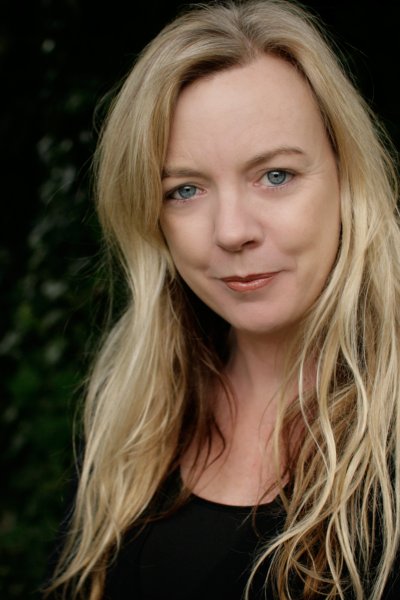A breakneck story of romance, love, power and justice, Anna K is the latest work by acclaimed Melbourne born playwright, Suzie Miller.
A Thoroughly Modern Millie piece, Miller takes the notion that it takes a lifetime to build a career with integrity and a single tweet to unravel it and runs with it. In fact, her inspiration to write the piece came from her interest in how humans often use public shame as a way of punishing someone who acts outside social norms.
“I am not talking about criminal acts but actions that seem to upset the way ‘things’ are.” she says. “It felt that women making autonomous choices about their lives had so much of this to contend with. Yes, people judge and shame men making family choices that do comply, but women are judged and cancelled for it, they are seen as ‘antiwomen’ and if they have a public platform their personal critique over their personal choices questions whether they are fit for a public platform. It still seems to be a shock if a woman leaves a marriage of her own volition, and somehow, she is ‘neglecting her children’ by disrupting their lives; that a mother must act in a certain manner and be compliant with the rules that have been created about family.”
Miller says research also showed that women in public places, with high profiles and online presence experienced online attacks and online shaming, not only in much higher proportions than men in similar situations, but that the attacks were orchestrated to undermine everything about those women. The gendered critique on looks, body, dressing, personal attributes, spread culminating in threats of sexual violence and annihilation.
“I wanted to explore the lived experience of such a twitter storm, and in some way compare this to the shaming of Tolstoy’s, Anna Karenina, and how it can lead to anguish and mental health crises that are life threatening, or life ending,” she says.
So the work was also a nod to Anna Karenina, a book Miller had read at 19 and then again in her 40s. “It struck me how while the times have changed, the way Anna Karenina was shamed and isolated, was similar to how female journalists I was talking to had experienced terrifying and devastating twitterstorms,” says Miller of the now 140+ year old work. “My research even came up with a UK journalist who was driven to suicide. How on earth do young girls and women deal with this when they are taught in other places that they are ‘welcome everywhere’, encouraged to think about public platforms as place they can occupy? Because the insidious abuse is so directed toward what they have to say and the fact that they are women saying it. But even if you are not a journalist or politician, the online abuse is gendered in all its bullying forms.”
What also struck Miller about Anna Karenina in her reread was how much of it sub-textually lead women to the ‘conclusion’ that acting outside the domestic sphere, whereby they leave marriages or children, or choose something autonomous that is not aligned with social norms, means they are silenced and destroyed. Kitty heeds the warning of Anna Karenina, pushes down her passionate natures and is held up to be the success story. “I also think Tolstoy understood beautifully the inherent social danger of the passionate nature. It still is dangerous to sit outside the patriarchal model. I always argue that feminism challenges this model and the society built upon it, yet feminist argument remains challenging for some men. Aside from anything else, inherent in this rejection is a failure to register that feminism challenges the patriarchal structure overall, including the oppressive demand that men should be the primary provider within a domestic arrangement.”
In this piece Miller would like contemporary audiences to examine how gendered our responses are to women in power, and women with platforms and profiles. “We all need to see how we contribute to it, so we can then question why we do consider with such judgement how women appear when they occupy such platforms,” Miller posits. “I also wanted to start a conversation about how online critique especially that which veers into suggestions of sexual violence or promotes self-harm is a modern form of silencing. When this silencing is experienced by women, it also serves to act as a warning to other women and different generations to say ‘speaking out is dangerous’, having a platform to talk about issues can lead to great harm when that same platform is turned into a public shaming.
Ultimately, I just want to start a conversation around how specifically this hate directed at women and their sexuality is another form of misogyny; but also to see how we isolate and destroy individuals with no real recourse to explanation, reconciliation or truth saying.
Dialogue is so important but there must be boundaries.”
Miller’s working day starts with breakfast and calls, then time before the computer, probably a chat to her ‘fabulous’ agent at morning tea. Then more writing. She usually takes a walk with her dogs around lunch, some more writing or emailing about work, then family time before some late night writing. Most of the writing is actual keyboard work – often just walking around in thought, or reading articles to fuel her writing time.”

Miller has been produced around the world winning multiple prestigious awards. Her most recent play, Prima Facie (premiered 2019,Griffin Theatre,) won the 2020 Australian Writers’ Guild Award for Drama; the 2020 David Williamson Award for Outstanding Theatre Writing; and the 2020 prestigious Major Australian Writers’ Guild Award across all categories of theatre, film and television. Its premiere production earned 5-star reviews across all platforms.
Drawn to complex human stories often exploring injustice, Miller likes to write stories where she is forced to grapple with a paradox, or interrogate a system that we all live by but which feels blind sighted to some things. She also likes to write from character, and to really know the characters she creates. Multi talented Miller works across theatre and screen -“this allows for many different forms of storytelling which keeps me thrilled and eager to explore.” Theatre is often wrought with ideas through character, whereas in screen she is forced to see how things can be said without being spoken. “It’s lovely to leap from one to the other, the worlds of each are very different,” she says. “Theatre is more solo in the actual planning and writing phase but keeps you in a very sacred zone of thinking. Then when you are in rehearsals, it is all collaborative and ideas spin and leap around. The characters are the things that I work with to explore the ideas behind the story. Screen has you amongst writers really early, and that’s like being at club med. Imagine having some of your besties around a table, plus others who will soon be your besties, and laughing and grappling together. It is collaboration up front and centre. We all settle in for some days with a whiteboard and a lovely producer supplying good food and coffee – it’s heavenly.”
When asked if there is a character that she was most drawn toward, Miller states that she loves all of her characters explaining that whoever she is writing about, she is completely in their orbit. “I understand them and want to know more and more about them,” she says. “I am very much a character- centred writer, and they come to me quickly and with great verve. Then comes the world they live in, and then the manipulation of that world. Sometimes I consider an issue I am stuck with, something that has a hook, a paradox, a thing that doesn’t make sense, is not unified in its way of dealing with people – and then I think of how I can show this lack of cohesion?” In order to do that Miller creates characters that sit in the world of the issue and make it so they are fundamentally affected by the issue in a way they couldn’t see coming. “In that manner, I guess I am working from different sides of my own head about how I could create two people who both make sense to themselves but the situation shows them to have come across something that is not adding up properly. If my situation is important to them enough, then their very lives are on the line!”
The Malthouse destination for Anna K began with Miller’s long admiration for Malthouse Theatre’s Artistic Director and Co-CEO, Matt Lutton. Miller was keen to work with him and his team and spoke to him in detail about this play that she was keen to write. “He was so enthusiastic, and so prepared to go there with me, that he commissioned it – and then Anna K was born,” says Miller. “It had been knocking around inside my head for a bit, and I just needed the right people to assemble.
The director Carissa Licciardello, is a passionate, young woman with wisdom beyond her years, and a contemporary sensibility about women in the world, and the cast are incredibly talented and gel completely. Even at the first covid-dictated online cold read I was blown away by how riveting they are together.
Malthouse is a gem of a theatre, and it is in the town I was born and bred – Melbourne – exhibiting the character of Melbourne in its restored malt factory, in its innovative and exciting storytelling, and in its community focus.”
Miller encourages audiences to attend by being completely open and honest, describing the work as really sexy and intimate. “The audience become engulfed inside world of a love affair that suddenly has to fight the world to maintain its integrity.
The actors are mind-blowingly connected and brave. I think you get to step into the shoes of a passionate, socially illicit relationship and ask what is true? What is real? What is dictated to us, and is it fair? And what does it mean to live your one small life according to your own autonomous decisions?”
Anna K is an interrogation of how women in public roles are attacked by hostile voices intent on silencing them.
August 12 – September 4
malthousetheatre.com.au



